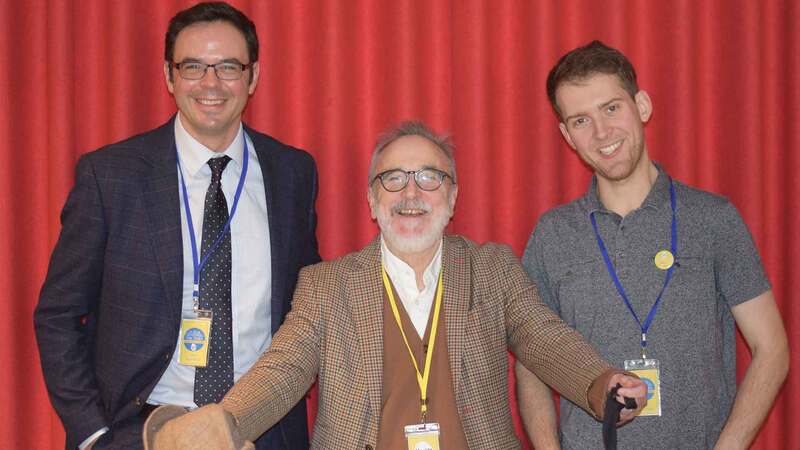You are viewing your 1 free article this month. Login to read more articles.
Dohle, Reidy and Sargent speak at New York's BookExpo
Association of American Publishers president Maria Pallante, moderating a friendly c.e.o. roundtable featuring three members of her board of directors – Penguin Random House’s Markus Dohle, S&S’s Carolyn Reidy, and Macmillan’s John Sargent - began by asking how markets are evolving.
Dohle replied: “Better than their image, both domestically and globally. The last 15 years, even in mature markets, we’ve seen growth. We have a stable model, compared to other media: print’s strength has stabilized the entire ecosystem.” Children’s and YA have had the fastest growth; downloadable audio, though still a tiny market, has grown “more than 30%” the first quarter of this year. All this is “very heartening”; Dohle saw “no reason to be pessimistic.”
Reidy also provided positive words: “Every time there’s a change in the market there are doomsayers, but the value of the book is as strong if not stronger than ever.” S&S’s own figures for the number of units it has sold in physical outlets “have been rock solid for the past five years.”
Yet all three c.e.o.s alluded, inevitably, to, in Sargent’s words, the “serious issues” publishing faces, among them “changing consumer buying behaviours;” “discoverability” (including of the crucial backlist that, after all, brings in most of the profits); and whether we can in fact protect “the book retail ecosystem.”
Pallante, the former US Register of Copyrights, also asked about the publisher’s role as “public citizen,” leading off, inevitably, with the free speech crisis Sargent faced in January when President Trump tried to prevent publication of Michael Wolff’s Fire and Fury.
“Holy cow, we’re gonna sell a shitload of books,” was Sargent’s initial (unvarnished) reaction, when he heard of the letter from Trump’s attorney; then he began to think how to respond in a way that made sure people at Macmillan understood what was at stake.
At first, he wanted to put in the last line of his response a rather well-known two-word expletive beginning with “F”, but his wife told him, “You cannot say, ‘Go Fish, Mr. President.’” (He followed her advice).
Yet as Reidy noted, “in the current polarized environment, a lot of people are telling us what to publish, and it’s bad coming from either side. Dealing with it, and with our own staff [polarity], is a big challenge. We need to be open to ideas we don’t agree with.”
Pallante ended the roundtable by asking what books the three were most proud of publishing. Sargent listed some basic requirements: “The book means something to the world and does good; it makes money; it’s a huge bonus if I like the author and there’s a great story that goes with it; I put personal effort into publishing it.” His choices: physician Atul Gawande’s Being Mortal and Bill Martin and John Archambault’s childrens book Ckicka Chicka Boom Boom.
Reidy agreed on requirements; her choices: Frank McCourt’s memoir Angela’s Ashes (signed despite “the common belief that the Irish don’t buy books about themselves”), Anthony Doerr’s novel All the Light We Cannot See, and Hillary Clinton’s 2003 memoir Living History.
Dohle emphasized pride in “diversity”; “backlist that transfers across generations”, like George Orwell’s 1984 and Margaret Atwood’s The Handmaid’s Tale; and a “very personal” choice: Michelle Obama’s Becoming, out this fall.















